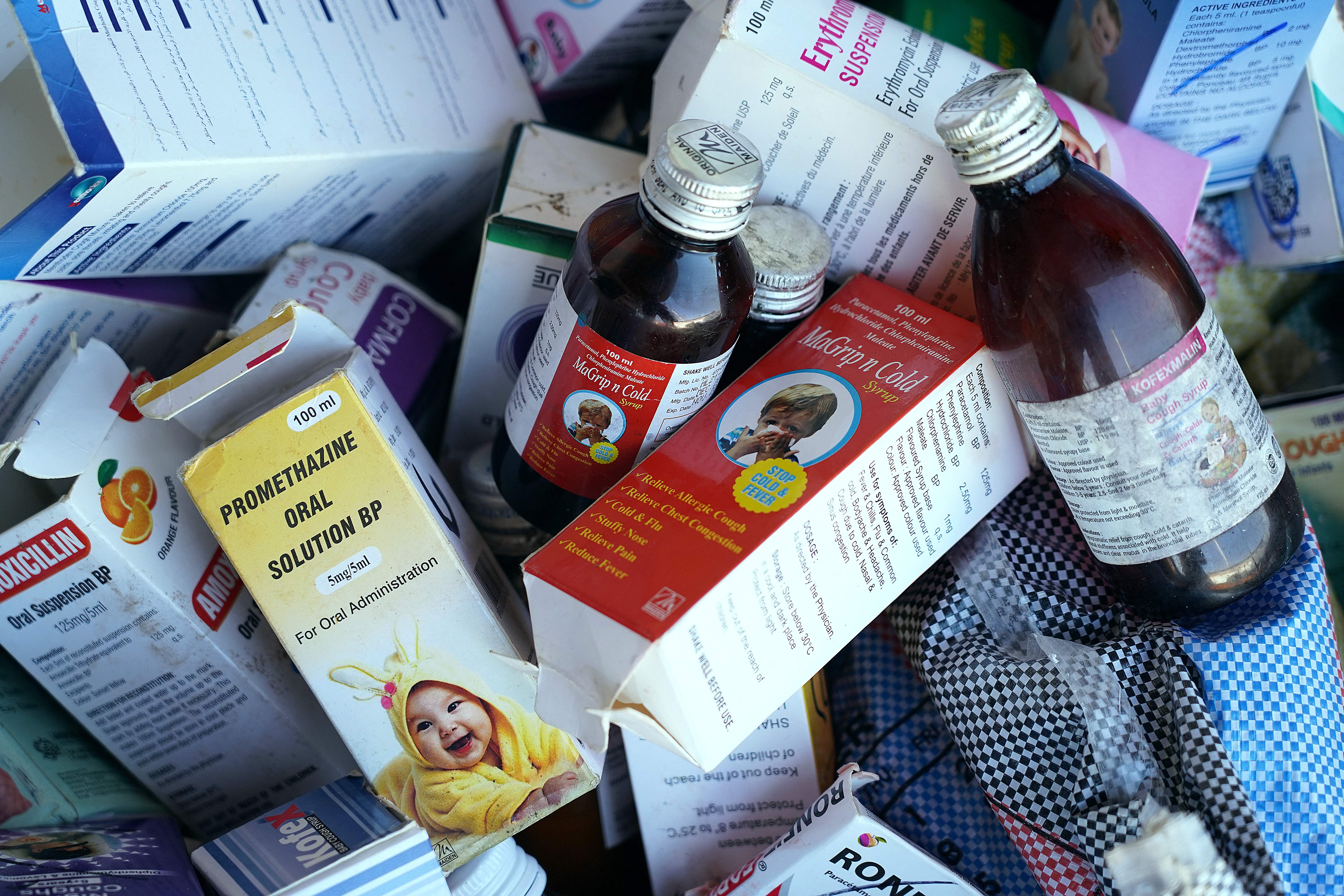Indian pharma company used toxic industrial-grade ingredient in cough syrup, says report
License of Marion Biotech suspended by Indian authorties

Your support helps us to tell the story
From reproductive rights to climate change to Big Tech, The Independent is on the ground when the story is developing. Whether it's investigating the financials of Elon Musk's pro-Trump PAC or producing our latest documentary, 'The A Word', which shines a light on the American women fighting for reproductive rights, we know how important it is to parse out the facts from the messaging.
At such a critical moment in US history, we need reporters on the ground. Your donation allows us to keep sending journalists to speak to both sides of the story.
The Independent is trusted by Americans across the entire political spectrum. And unlike many other quality news outlets, we choose not to lock Americans out of our reporting and analysis with paywalls. We believe quality journalism should be available to everyone, paid for by those who can afford it.
Your support makes all the difference.An Indian pharma company whose cough syrups were linked to the deaths of 19 children due to poisoning in Uzbekistan allegedly used industrial-grade ingredients, according to a report.
Reuters reported quoting sources that Marion Biotech, a company based in the township of Noida in the northern Indian state of Uttar Pradesh, bought the ingredient propylene glycol (PG) from trader Maya Chemtech India, which only sold industrial-grade materials and not pharmaceutical-grade ingredients.
Last year, India launched an investigation against Marian Biotech and suspended its license after WHO issued a global medical alert for two cough syrups produced by the company.
The firm’s Dok-1 Max and Ambronol cough syrups were linked to the deaths of 19 children in Uzbekistan last year.
A person who refused to be identified said Maya Chemtech did not have a licence to sell pharmaceutical-grade materials.
Two sources told Reuters that the syrup was made using PG which is a toxic material used in liquid detergents, antifreeze, paints or coatings, as well as pesticides.
"We did not know Marion was going to use it to make cough syrups," said the person, who declined to be identified while the case was being investigated. "We are not told where our material is used."
Another person, who is involved in the official investigation into the case, said Marion bought commercial-grade propylene glycol.
"They were supposed to take Indian Pharmacopoeia-grade," the person said referring to national standards for the composition of pharmaceutical products.
The source who is involved in the investigation told Reuters that Marion sold the syrups to a Uzbekistan company without testing the ingredient used in its syrups.
India, the world’s largest exporter of generic drugs, has come under scrutiny over the quality of the exported drugs that have been linked to deaths and hospitalisations in almost half a dozens countries.
Last week, the WHO flagged seven India-made syrups that were linked to over 300 deaths globally.
Around 20 syrups manufactured by companies in India and Indonesia were also flagged by the health agency, according to NDTV.
Marion Biotech denied allegations of wrong doing in previous statements. It previously said that it "did not agree" with the WHO’s findings and said the company was cooperating with investigation.
The WHO said that Uzbekistan’s health ministry found "unacceptable amounts" of diethylene glycol and ethylene glycol in the drugs.
Apart from Uzbekistan, at least 70 children were reported dead in Gambia after consuming cough syrups made by Maiden Pharmaceuticals.
Maiden Pharmaceuticals denied the allegations in previous comments.
Following the incidents of deaths, India made it mandatory for pharma companies to have their cough syrups tested before export from June.
The Independent has contacted both Marion Biotech and Maya Chemtech for comments.



Join our commenting forum
Join thought-provoking conversations, follow other Independent readers and see their replies
Comments